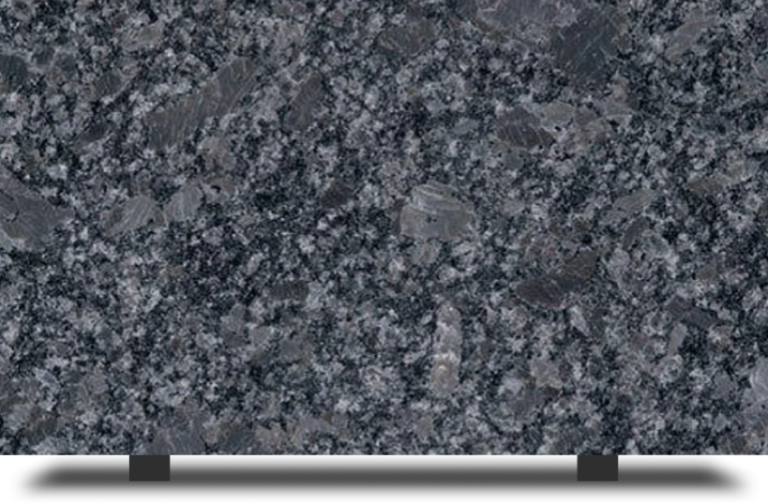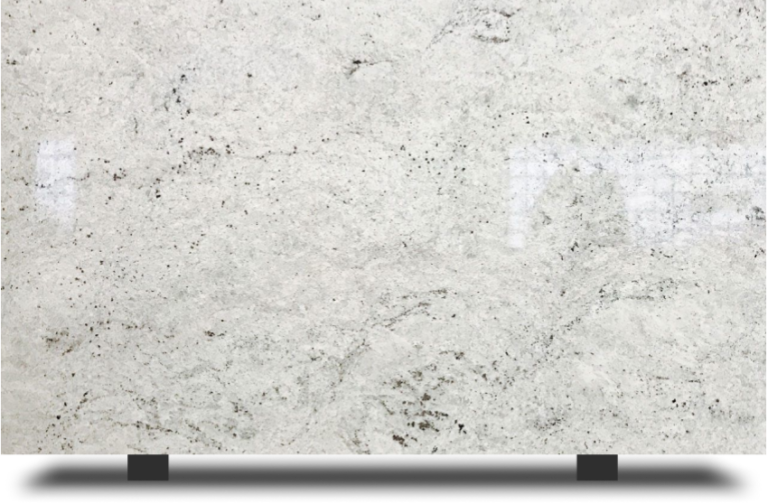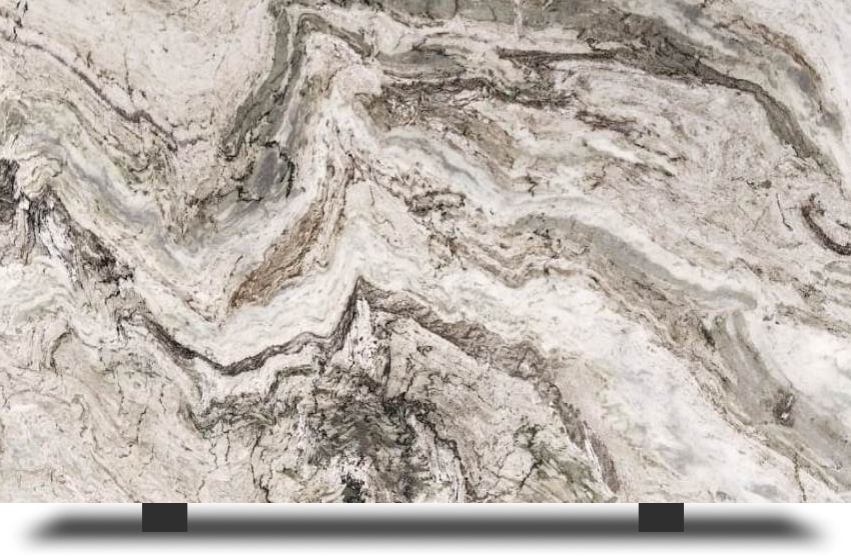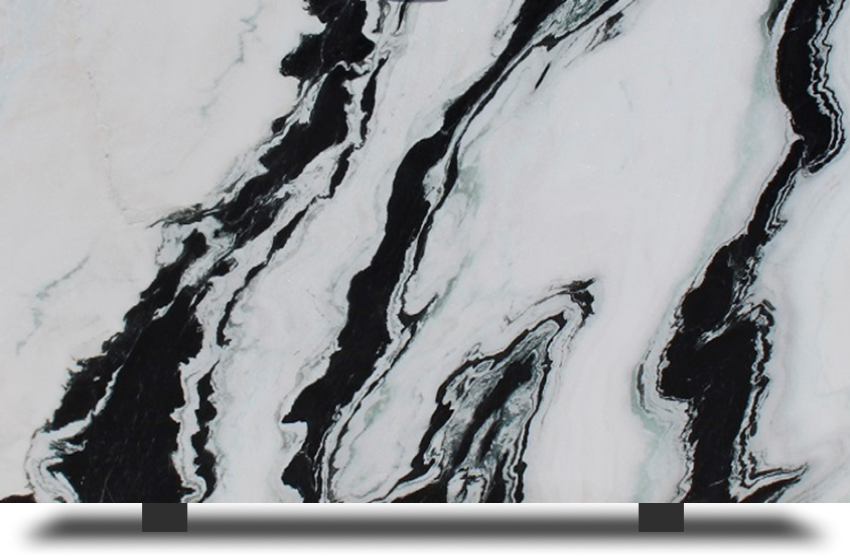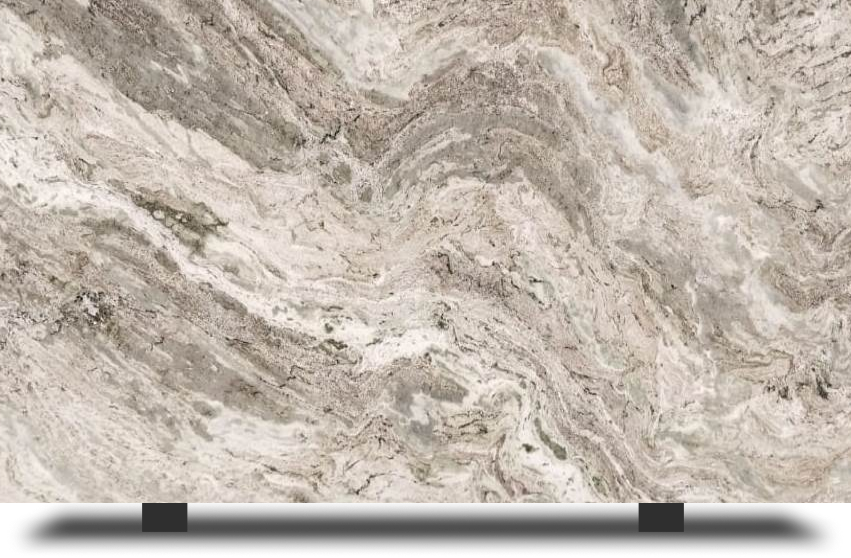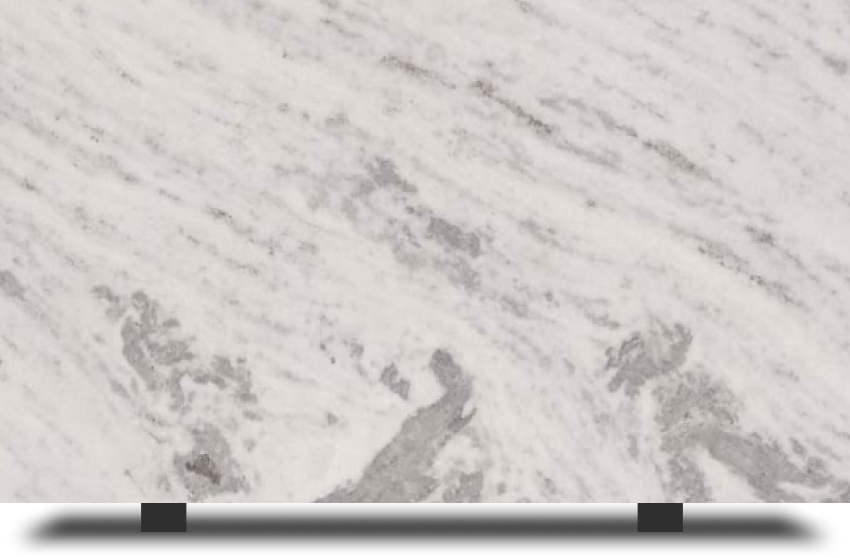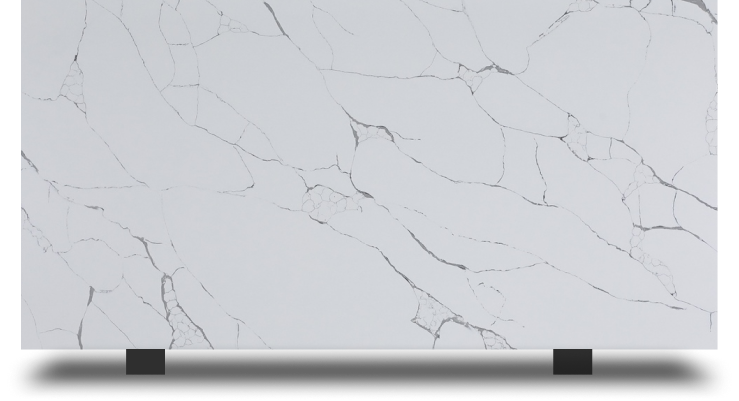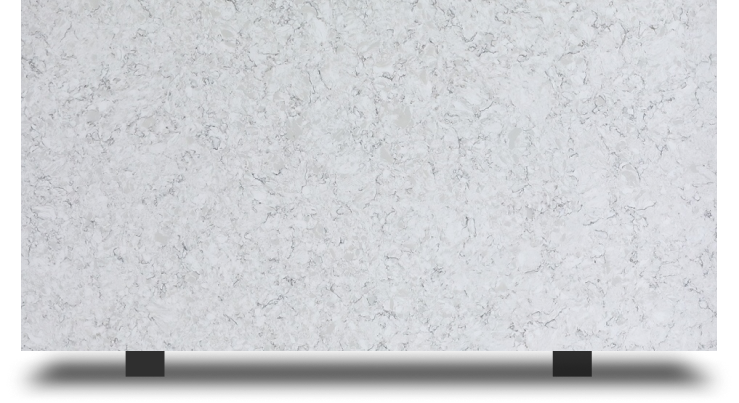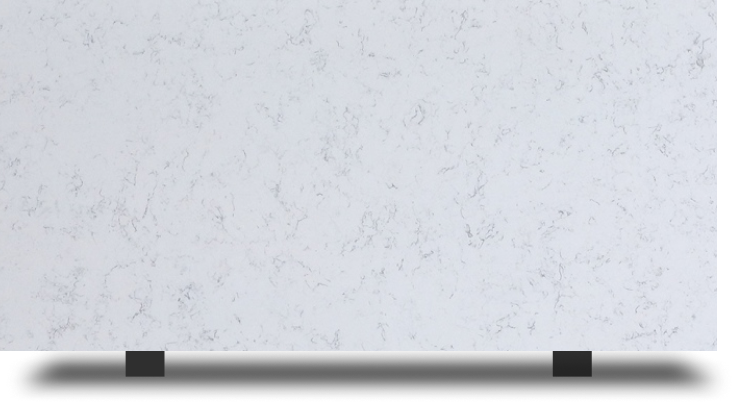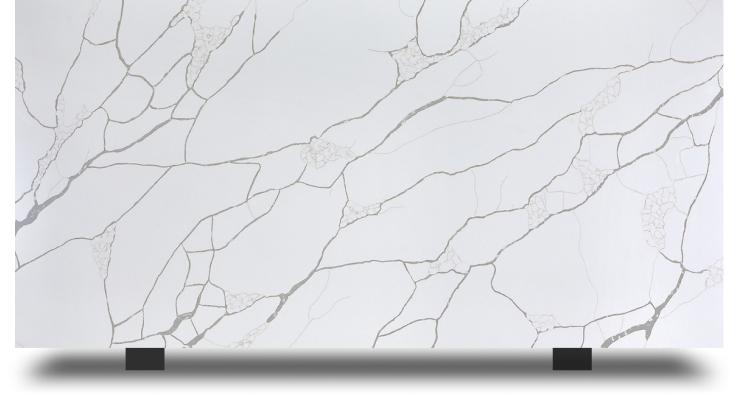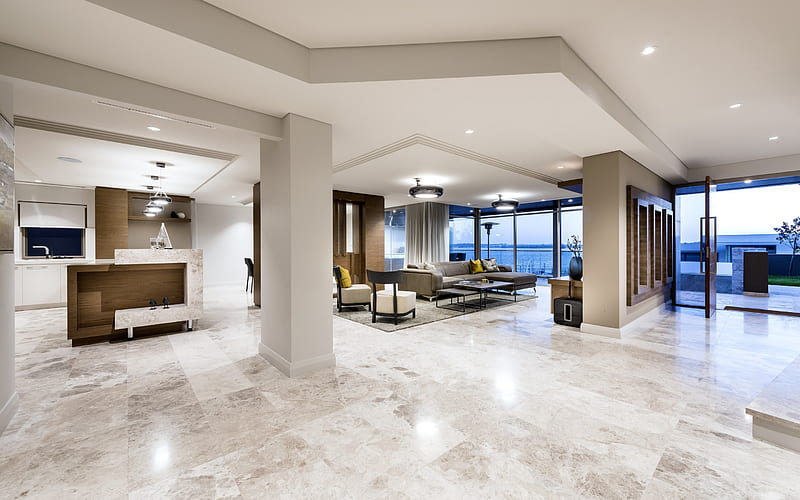Quartz and quartzite are a popular choice among homeowners, designers, and fabricators. People often get confused between the two. Both the stones have similar-sounding names, so many think that they’re the same. But they are two different materials with distinct characteristics and benefits. If you are also one of the people who gets confused between quartz and quartzite, read on.
In this blog, we will thoroughly discuss the difference between quartz and quartzite. We hope we’re able to provide clarity and put an end to the quartz vs quartzite puzzlement. This helps buyers understand the dissimilarities between the materials. Besides, it promotes informed buying decisions. Scroll down to determine which is a better option for your home, a quartz or quartzite countertop.
What is Quartz?

Quartz is a manmade stone that’s made using ground quartz, resins, and pigments. Likewise, a quartz countertop is also an engineered surface material. Quartz offers many benefits, functionality, and flexibility. It’s aesthetic, durable, consistent, non-porous, resistant, and easy to maintain. It’s one of the most premium quality and strong engineered stones available in the market. Buyers can get in various colors, patterns, and styles. Its excellent characteristics make it suitable for both commercial and residential applications.
What is Quartzite?

Unlike quartz, quartzite is a natural stone. It’s a metamorphic rock that forms from Sandstone. It is one of the most sought-after material options for countertops. A Quartzite countertop can have exceptional hardness, strength, and density. It’s because it offers a similar color palette and veining to marble. Also, it has better resistance to everyday chemicals. It might not be 100% non-porous, but its weather durability and abrasion resistance make it fit for many uses.
What is the Difference between Quartz and Quartzite?
Quartz and quartzite are both beautiful surface materials. But they are both poles apart on many levels. Quartz is an engineered stone made using 90% ground quartz and 10% resin and pigments. It has a non-porous surface; it doesn’t absorb any moisture or liquid. It’s also resistant to stains. These features make it an easy-to-clean and maintain surface. Besides, it does not need annual sealing treatments either.
But it doesn’t work well with heat. It is because of the resin content present in quartz kitchen countertops. It’s non-resistant to heat above 121.2 degrees Celsius and UV rays too. Constant exposure to heat can lead to wrapping and discoloration of the surface. Yet, it might be more reasonable than quartzite as it costs less per square foot. It is also because quartz comes in conventional sizes while the latter comes in various sizes.
Whereas quartzite is a natural stone. It needs regular sealing treatment for protection against damage. But it works well in heat. So, it can be used as backsplashes in the kitchen, around fireplaces and in steam showers. Quartzite is expensive compared to quartz. But some popular quartzite countertops are more affordable than marble. Besides, quartzite is available in natural and unique patterns and textures.
From caramel crystal veins to the freckled organic movement, it is the earth’s purest form of beauty. It offers special patterns with details that cannot be manufactured. That’s why homeowners, designers, architects, and fabricators adore it alike. Natural stone has charm and precision that stands the test of time. If the buyer’s material selection aligns with a natural look, quartzite kitchen countertops are the best choice.
Let’s dwell further for more clarity into quartz vs quartzite with their pros and cons.
Quartz Countertops Pros and Cons

To understand the quartz and quartzite difference, let’s learn the pros and cons of both. Here are some advantages and drawbacks of quartz countertops below.
Pros
- Durability: When it comes to durability, quartz slabs top the list. As they are a manmade material, they’re ultra-durable. They don’t scratch, stain, chip, or crack with sudden external impact. If buyers are searching for a surface material option that can last for decades, then they’re the best bet.
- Easy to Maintain: They have a non-porous surface that doesn’t need sealing or special care. Unlike natural stones such as granite or marble, they don’t need annual sealing treatments. Homeowners don’t need to worry about regular repairs or replacements either.
- Easy To Clean: Their non-porous surface makes it very easy to clean. For basic cleaning, all one requires is water, soft cloth, and a mild surface cleaner. The surface doesn’t absorb any liquid or moisture so, it becomes anti-bacterial too.
- Versatile: Quartz is a very versatile material with several applications. One can install it in kitchen countertops, bathrooms, flooring, accent walls, and more. The slabs also come in different colors, patterns, and styles; you can choose what fits your liking.
- Resistant: They are resistant to scratches, stains, and cracks. Their durability makes them suitable for everyday use and can handle daily wear and tear effortlessly.
- Resale Value: There has been a rise in quartz’s popularity. This has led to an increase in their value as per the buyers’ appeal. If homeowners are planning to resale a property, installing quartz can help them fetch a higher price in the market.
Cons
- Price: Quartz slabs are priced a bit higher compared to other countertop materials. The luxury of installing them comes at a noteworthy price.
- Prone to Heat Damage: Though the quartz present in the slabs is heat resistant, the resin is not. When the surface meets high heat, the resin particles can melt leading to discoloration.
- Engineered Stone: Quartz occurs in nature, but its countertops do not. They are manufactured using a process in factories. They might replicate the beauty of natural stones, but in essence, they’re not natural. Their manufacturing procedure also emits hazardous gases and chemicals into the environment.
- Professional Installation: DIY installations are not possible as the slabs are heavy. Only professional installation using tools and expertise can result in an excellent finish.
- Indoor Use: Most quartz countertops are suitable for interior use only. Exposure to direct sunlight and UV rays can lead to surface discolor. There are only a few quartz options to install in outdoor projects, that too under shade.
Quartzite Countertops Pros and Cons

To understand the difference between quartz vs quartzite countertops, let’s look at the pros and cons of quartzite.
Pros
- Natural Beauty: Quartzite slabs offer natural beauty to any space. They come in a wide range of hues from greens, deep blues, and pinks to reds. Its bold patterns and veins make it one of the most stunning materials to use in different projects.
- Durable: Aesthetics isn’t the only thing that quartzite countertops offer. They are also hard and dense. The conditions under which they form make them naturally durable. That’s why they’re suitable for both interior and exterior projects.
- Low Maintenance: Besides annual sealing, they don’t need much maintenance. Their cleaning is also simple, use a damp cloth to wipe off any dirt and grime.
- Resistant: Due to their durability, they are resistant to cracks, chipping, and scratches. Besides, if they’re sealed well every year, they also become resistant to stains.
- Versatile: Quartzite slabs offer great versatility due to their beauty, hardness, and durability. Some of their common applications include kitchen countertops, bathroom vanities, wall cladding, flooring, pools, patios and more.
Cons
- Expensive: Quartzite countertops can be expensive for some since it’s natural and popular. Depending on the stone’s quarry location and quality, it can be a pricey investment for any project.
- Porous: Natural stones are bound to have pores on their surface. It makes them susceptible to staining from different liquids like oil. To maintain the surface’s beauty and condition, sealing them once a year is a must.
- Installation Difficulty: They are a very dense and heavy material that requires professional handling. Due to this, it becomes challenging to install. Only special tools and training can install them with less hassle.
Which is More Expensive Quartz or Quartzite?
If we compare quartzite vs quartz prices, they’re quite similar. But quartzite is priced a little higher. The major reason behind this is that quartzite is a custom-cut natural stone. It is cut using a diamond blade which is an expensive procedure. While quartz is poured into a mold and manufactured into custom slab size as per need.
Which is Better Quartz or Quartzite?
If we talk about quartz and quartzite, they have their pros and cons. They’re both beautiful, high-quality, unique, durable, and versatile. They’re ideal for various uses including kitchen countertops, bathrooms, tables, fireplaces and more. The final choice boils down to personal taste, requirements, and budget. Whether you select quartz or quartzite as your material, we at Stone Depot offer both.
Stone Depot carries the most extensive selection of natural and manmade stones in the USA. Our stone collection is of premium quality, long-lasting and durable. We promise to deliver the products with secure packaging and in the shortest lead time possible. So, if buyers are searching for quartz or quartzite at the best prices, browse through our website. Contact our experts at Stone Depot for further help today.

George is an accomplished content writer at Stone Depot, specializing in creating captivating and informative content related to the world of natural stone. With a passion for writing and a deep appreciation for the beauty and versatility of stone, he strives to provide readers with valuable insights and inspiration.


